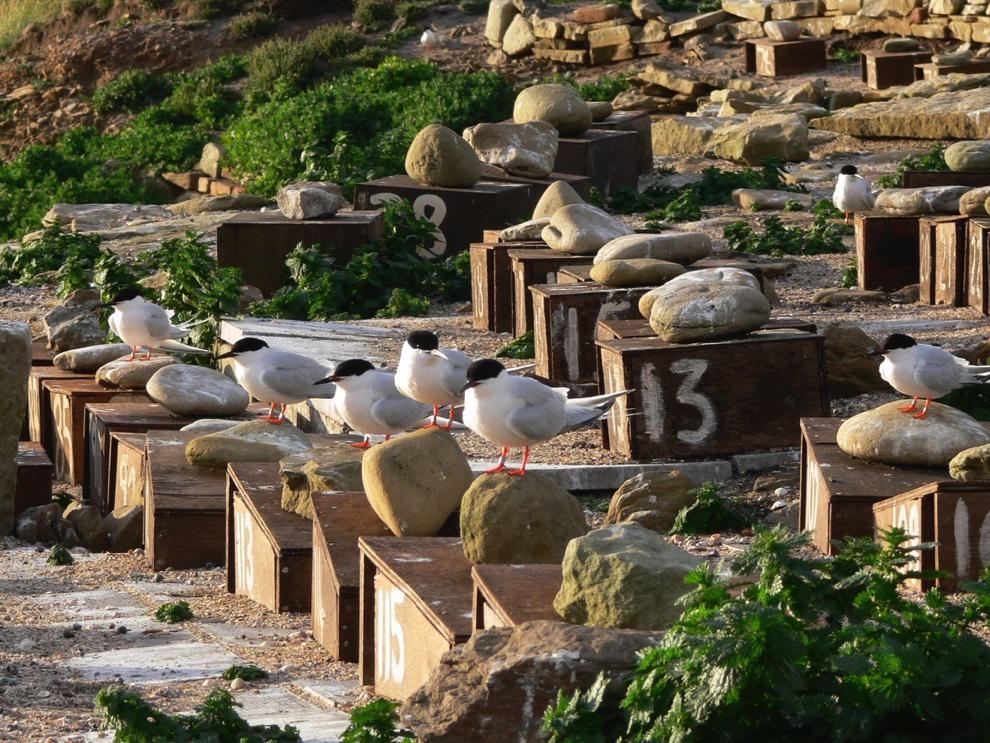Record-breaking numbers of UK's rarest seabird return to island after near extinction
118 pairs of roseate terns successfully raise chicks off coast of Northumberland after nearly being wiped out in 1970s

Your support helps us to tell the story
From reproductive rights to climate change to Big Tech, The Independent is on the ground when the story is developing. Whether it's investigating the financials of Elon Musk's pro-Trump PAC or producing our latest documentary, 'The A Word', which shines a light on the American women fighting for reproductive rights, we know how important it is to parse out the facts from the messaging.
At such a critical moment in US history, we need reporters on the ground. Your donation allows us to keep sending journalists to speak to both sides of the story.
The Independent is trusted by Americans across the entire political spectrum. And unlike many other quality news outlets, we choose not to lock Americans out of our reporting and analysis with paywalls. We believe quality journalism should be available to everyone, paid for by those who can afford it.
Your support makes all the difference.Record numbers of roseate terns have nested off the coast of Northumberland, raising hopes for this once critically endangered bird.
Populations of these terns crashed as low as 16 breeding pairs in the 1970s due to demand for their beautiful plumage, which was used to make hats.
Though still considered the country’s rarest seabird, roseate tern numbers have bounced back thanks to a concerted effort by conservationists, and this year saw 118 pairs raising chicks on Coquet Island.
The small island, just a kilometre from the mainland, is host to the last sizeable breeding population of the tern – which was once widespread across the whole of the UK.
Their success there has been largely the result of a scheme to create rows of “terrace houses” for the birds to live in, which recreate the crevices that the terns like to lay their eggs in.
The RSPB constructed these special nest boxes on the island in 2000 when the population still only numbered 34 pairs, and since then numbers have consistently climbed.
“For the past three years we’ve been consistently attracting more than 100 pairs of roseate terns to the island, who have fledged more than a 100 chicks each year,” said Paul Morrison, warden at RSPB Coquet Island.
“This is paving the way to building a larger breeding population, which will soon reach a point where birds are beginning to nest in places beyond Coquet Island.
“Ultimately, we’d love to see roseate terns that have been raised here establishing new colonies around the UK.”
Terns still face challenges today, even now they are no longer hunted for feathers. Sea level increase and extreme weather are eroding their natural nesting habitat, and they are suffering from food shortages due to changes in the marine environment.
The RSPB’s efforts to bring them back from the brink have been driven by the EU-funded roseate tern Life recovery project, which has provided over 200 new nest boxes to the Coquet initiative.
Life project manager Daniel Piec said: “The work undertaken through the RPSB with added support from Life project has been essential in saving this rare bird from extinction in the UK and giving it a rosy outlook for the future.”
Roseate terns have also been making a comeback in other parts of the country.
In early August two tern chicks hatched off the coast of Anglesey, marking the first time a pair successfully bred there in over a decade, after similar efforts to attract the birds with nest boxes.
Join our commenting forum
Join thought-provoking conversations, follow other Independent readers and see their replies
0Comments